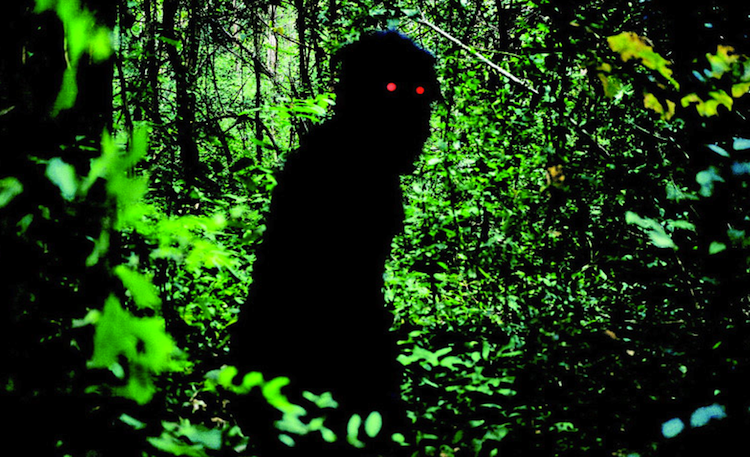By Joe Bendel. An old commie hunter, Uncle Boonmee is haunted by spirits. However, his ghosts are largely benevolent, seeking to comfort Boonmee during his final days. Rife with magical realism but deliberately toying with narrative structure, Apichatpong Weerasethakul’s Cannes Palme D’Or winning Uncle Boonmee Who Can Recall His Past Lives is now playing in New York at Film Forum and elsewhere around the country in a limited art house release.
Boonmee is slowly dying from a humiliating kidney dysfunction. He is faithfully attended by his Laotian servant Jai and the ghost of his deceased wife Huay, among others. Even his long lost son Boonsong pays his final respects, despite having transformed into a red glowing-eyed monkey spirit, lurking the dark heart of the jungle with his beastly cohorts.
It has been an eventful life, but it is nothing compared to Boonmee’s visions of his previous incarnations, particularly an episode in which a mystical catfish ravishes a self-esteem-challenged princess. Consistently obscure throughout Recall, Weerasethakul never explicitly spells out Boonmee’s role in this Leda-like tale, but since the lagoon is described as the place where Boonmee’s lives began, it seems safe to assume there is some fishy DNA in his karma.
Though Boonmee ruefully suggests his current bad karma stems from his past anti-Communist military activities, perhaps he should ask the Cambodians about what he helped spare his countrymen (“you did it for your country,” his sister-in-law Jen reminds him). Regardless, Weerasethakul’s somewhat veiled commentary is so deeply buried under multiple layers of symbolic meanings and narrative gamesmanship, it is doubtful Recall will inspire many viewers to spontaneously erupt in a rendition of “The Internationale.” Instead, those so inclined will probably break the film down into the parts they can deal with, whether that might be the animatronic catfish or Buddhist reincarnation themes.

Of course, there is something problematic about a film’s whole, if it is less than its constituent parts. Between its double-secret allegories, nonlinear forms, and deliberate stylistic shifts, Recall is so busy displaying a self-conscious artiness, the rain forest gets lost for the trees. In fact, Recall along with the experimental companion short Letter to Uncle Boonmee were conceived as part of Weerasethakul’s multi-media, multi-platform project Primitive. Indeed, there are times when the static nature of Recall and particularly the narrative-free Letter seem more closely akin to installation videos than stand-alone films.
Though the late reappearance of characters from Weerasethakul’s past films might be enriching for those in the know, bringing things full circle, it further limits the film’s ability to connect with average well-meaning audiences. Still, Thanapat Saisaymar manages to express something fundamentally and universally human as the dying Boonmee, while Jenjira Pongpas also adds a bit of grace to the proceedings as Jen.
Obviously, Recall is a film for hardcore art-house and festival audiences. It boasts some reasonably nice performances, but it thoroughly confuses the distinction between avant-garde provocation and portentous pretention. A film that does not live up to its festival acclaim, Recall is now playing in New York at Film Forum and elsewhere in limited release.
Posted on March 4th, 2011 at 1:42pm.
One thought on “LFM Review: Cannes Palme D’Or Winner Uncle Boonmee Who Can Recall His Past Lives”
Comments are closed.